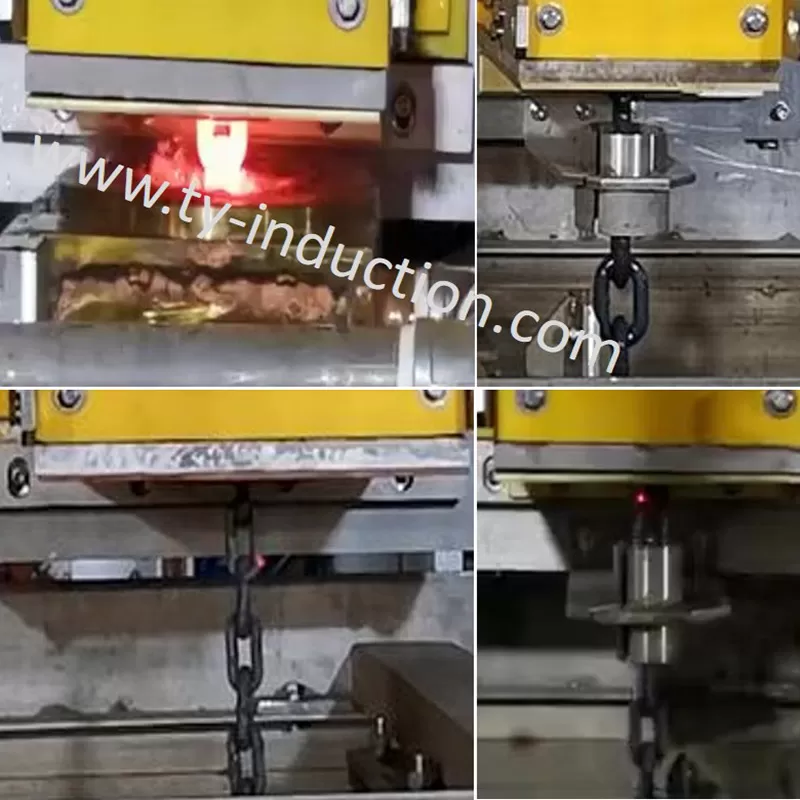Maximizing Efficiency and Precision with Chain Induction Heat Treating Line
In the realm of industrial manufacturing, optimizing production processes is key to achieving superior quality, cost-effectiveness, and overall success. One such critical process is heat treating, which involves subjecting metal components to controlled heating and cooling cycles to enhance their mechanical properties. To accomplish this efficiently and with precise control, many industries are turning to chain induction heat treating lines. In this article, we will delve into the various aspects of chain induction heat treating lines, exploring their benefits, applications, and the advantages they offer over traditional heat treatment methods.

Understanding Chain Induction Heat Treating
Chain induction heat treating is a highly advanced method that utilizes electromagnetic induction to heat and treat metal parts. Unlike conventional heat treatment techniques that rely on furnaces or open flames, chain induction heat treating provides a more focused and localized heating approach. It involves the use of an induction heating system consisting of a series of coils positioned along a conveyor chain. The metal parts are placed on the chain, and as they pass through the coils, they are exposed to an alternating magnetic field that induces rapid and controlled heating.
Advantages of Chain Induction Heat Treating
Chain induction heat treating offers several significant advantages over traditional heat treatment methods, making it an attractive choice for many industries. Some key benefits include:
i. Enhanced Efficiency and Productivity
By utilizing induction heating, chain induction heat treating lines offer remarkable efficiency gains. The rapid heating capability allows for faster processing times, enabling higher throughput and increased productivity. Additionally, the precise and localized heating minimizes energy waste, making the process more environmentally friendly and cost-effective.
ii. Superior Quality and Consistency
One of the primary concerns in heat treating is achieving consistent and uniform results. Chain induction heat treating lines excel in providing exceptional quality and uniformity. The controlled heating process ensures consistent hardness, microstructure, and mechanical properties across all treated parts, resulting in superior product quality and performance.
iii. Flexibility and Versatility
Chain induction heat treating lines offer remarkable flexibility, allowing for the treatment of a wide range of metal parts, regardless of their size, shape, or complexity. The conveyor chain system can accommodate different part geometries, making it ideal for various applications, including automotive, aerospace, and tool manufacturing.
iv. Precise Control and Automation
With chain induction heat treating, precise control over the heating process is easily achievable. The induction heating system enables accurate temperature regulation and time control, ensuring the desired metallurgical transformation is achieved consistently. Furthermore, the process can be fully automated, reducing the need for manual intervention and increasing overall process reliability.
Applications of Chain Induction Heat Treating
Chain induction heat treating finds extensive application in numerous industries due to its exceptional benefits. Some notable applications include:
i. Automotive Industry
In the automotive industry, chain induction heat treating is widely utilized for heat treating critical components such as gears, shafts, bearings, and camshafts. The process ensures the desired hardness, durability, and wear resistance of these components, contributing to improved performance and longevity of automotive systems.
ii. Aerospace Industry
Chain induction heat treating plays a crucial role in the aerospace sector, where stringent quality standards and component reliability are of utmost importance. The process is employed for treating turbine blades, landing gear components, and various other aerospace parts, ensuring high strength, fatigue resistance, and dimensional stability.
iii. Tool and Die Manufacturing
The tool and die manufacturing industry benefits greatly from chain induction heat treating lines. Tools, dies, and molds undergo heat treatment to achieve the necessary hardness and wear resistance for prolonged service life. Chain induction heat treating provides precise and repeatable results, enabling the production of high-quality tools that meet demanding performance requirements.
Conclusion
Chain induction heat treating lines offer an advanced and efficient solution for achieving superior heat treatment results. With their enhanced productivity, exceptional quality, and precise control, they have become a preferred choice in various industries, including automotive, aerospace, and tool manufacturing. The advantages of chain induction heat treating, such as enhanced efficiency, flexibility, and uniformity, make it a reliable method to optimize production processes and elevate the overall performance and durability of metal components.
By implementing TY Induction’s chain induction heat treating line, manufacturers can unlock new levels of efficiency and precision, positioning themselves ahead of competitors in the market. Embracing this cutting-edge technology enables companies to elevate their product quality, reduce costs, and deliver exceptional value to their customers. As industries continue to evolve and demand higher standards, chain induction heat treating proves to be an indispensable tool for achieving success in the realm of metal component manufacturing.
186
0
0


Comments
All Comments (0)